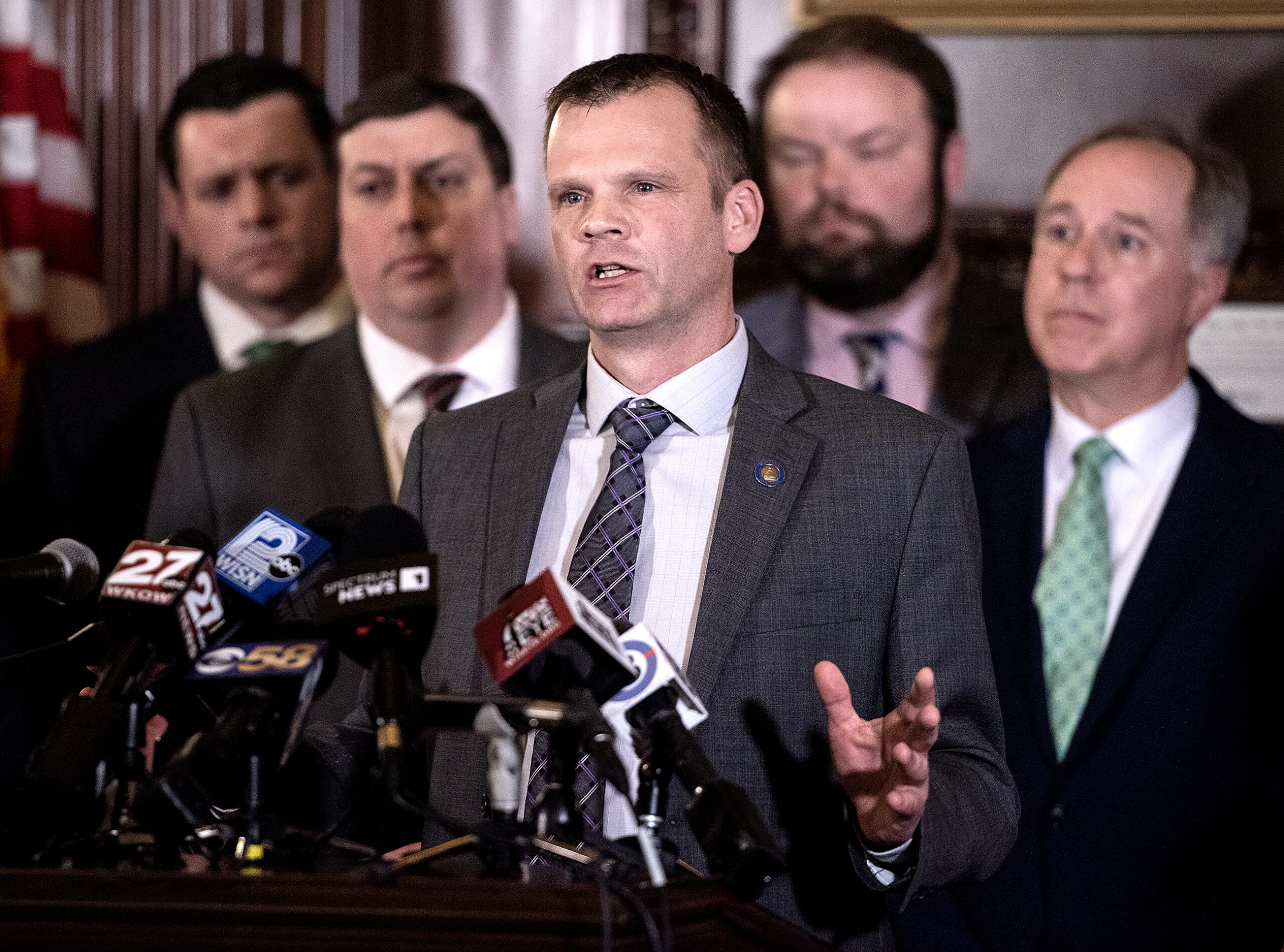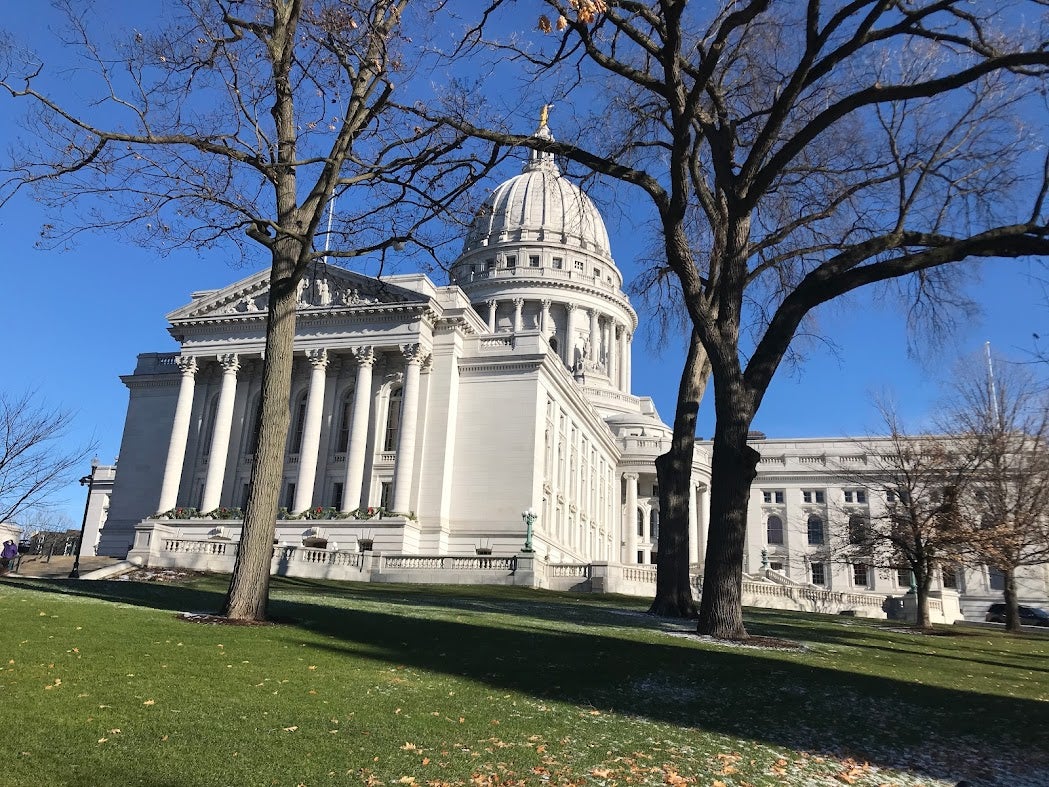Gov. Scott Walker signed into law this week around $500 million worth of property and income tax cuts. The governor says he’s hopeful the tax relief will help spur job growth in the state.
After signing the final part of his Blueprint For Prosperity package into law, Walker made a number of stops touting the economic benefits he hopes will come from his latest round of tax cuts.
“We’ve signed into law $500 million worth of property and income tax relief,” Walker said. “On top of that, next Tuesday we’ll be putting in place more than $300 million worth of withholding tax relief.”
Stay informed on the latest news
Sign up for WPR’s email newsletter.
Walker contrasted his efforts to cut taxes with the Minnesota Legislature’s decision to raise taxes by around $2 billion on businesses and individuals.
“I’m proud to say, with the law we signed into effect today, taxes in this state, the tax burden of the hardworking taxpayers of this state over the last three years has gone down by $2 billion and we hope that is a powerful message for employers,” Walker said.
Despite the difference in tax policy, Minnesota is leading Wisconsin in job creation, according to the latest Quarterly Economic Census data. Walker says that can be attributed to the Twin Cities Metro area outperforming Milwaukee.
Walker, however, says he’s hopeful that continuing to reduce the tax burden on individual taxpayers, small businesses and corporations will mean more spending and economic activity.
“In each of those cases, if you lower that cost burden, that’s money they can reinvest in new capital purchases, new equipment, new technologies,” Walker said. “Those are all things that ultimately lead to people working, and they can create more jobs that way.”
Walker says he plans on further reducing income taxes when he starts crafting his next biennial budget.
Wisconsin Public Radio, © Copyright 2024, Board of Regents of the University of Wisconsin System and Wisconsin Educational Communications Board.






